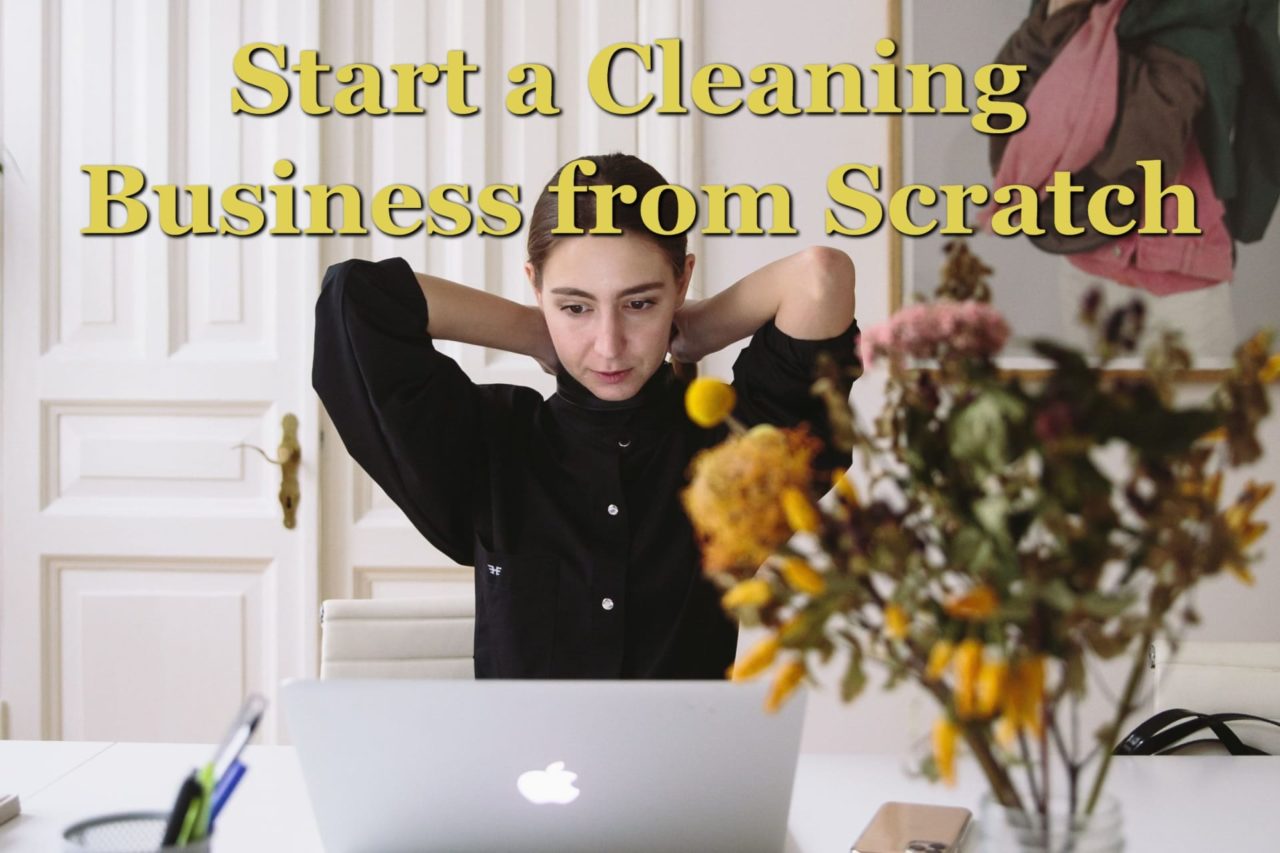Starting your own business is an exciting time. There are numerous benefits to owning a cleaning business, and it’s often a sound investment of your time and money. It’s also one of those businesses where you start to turn a profit – quickly. But before you start advertising for new customers, you need to start at the beginning. In this article, we’re going to cover some of those basics that you need at the start. This will be the ultimate guide to successfully start your own cleaning business from scratch. Once these things are completed, there is nothing you can’t do. Just remember: attention to detail is going to work in your favor.
Step 1: Create Your Business Plan
Planning is essential, especially in the beginning. When you start a cleaning business from scratch, your first step should be to create a detailed business plan. This is helpful not only for you, but for any kind of bank (if you’re considering a loan). Your business plan should include the following:
- Detailed summary
- An explanation of how your business is going to operate
- Information on everyone who is part of your business team
- An explanation of who your target audience is, and why you’re choosing that audience
- A business overview including the legal operations
- Your financial plan
- Your business projections
- A market analysis
- Your sales and marketing strategies
If you’ve never created a business plan before, this can be pretty complicated. You want to make sure that your plan not only covers all of your bases, but it also answers any questions your lenders might have. You might consider hiring a consultant to help you check all of the right boxes here.
Step 2: Decide on Your Target Market and Name Your Business
After your business plan is locked into place, you can name your company (if you haven’t already) and decide on your target market.
Your target market is important because it will determine how you advertise, what supplies you’ll buy, and where you’ll need to place your investments. If you decide you’d like to cater to the elderly, you’d advertise in a completely different place than if you were catering to college students. Certain cities also demand different things. If you are working in a modern, urban city, you might want to focus on all-natural cleaning supplies. The city you’re working in will also determine the rates that you set for your customers.
Step 3: Get Your Business Permit and Pick Your Insurance Company
Many people wonder if they need a business permit as an independent contractor or a business owner. The need to obtain a permit varies from business to business, state to state, and jurisdiction to jurisdiction — but when you’re starting a cleaning company, you will typically need it. Most jurisdictions won’t even allow you to open your company without a permit.
Alongside your permit, you’ll want to look into insurance. If you get injured in one of your customer’s houses, you must have it covered. You don’t want to have to worry about paying out-of-pocket for something like that. Basic liability insurance will take care of this so that you don’t have to worry about it.
Step 4: Hire an Accountant
Being a business owner means filing business tax returns. Business tax returns aren’t easy. If you’ve never filed your own taxes, quite a few mistakes could be made. You could also accidentally neglect to add deductions, which takes money right out of your pocket. The smartest move is to hire an accountant or a CPA, especially in the beginning.
An accountant can also help you manage the money you have coming in vs. the money you have going out. This is an essential element. The proper budget will determine whether or not your business will be successful.
Step 5: Get the Right Business Forms
Getting all of your forms in order is that “last hurdle” before you can officially start cleaning homes. Some of the business forms you’ll need to obtain include:
- Work orders
- Estimate forms
- Cleaning invoice forms
- Satisfaction surveys (for your clients)
- Breakage report forms
- Bad check notice forms
Step 6: Promote Your Business
After you have handled all of the legal red tape and gotten everything in order, it’s time to start advertising. Word-of-mouth is always convenient, but oftentimes, that luxury isn’t available for starter businesses. You need to find a way to get people “in the door”. You need to pick the marketing strategy that works best for your target market.
Creating your own website is also highly important, so if you don’t know how to do that, getting some help is a great way to go. These days, it’s pretty hard to have a business with no website.
Your target market will tell you a lot about how you need to advertise. If you’re trying to reach the elderly, you will be doing more paper marketing. If you’re trying to reach retirees, you may want to try vacation hotspots. Whereas, if you’re looking to reach Millennials, you may want to advertise online etc. There are a ton of options for advertising, but that’s what makes it tricky. If you advertise incorrectly, you could end up losing a lot of money.
It can be really difficult to figure out what kind of advertising will work for you – especially if you’ve never done advertising or don’t have experience in running a business. This is where a consultant really comes in handy.
Finding someone who has done this and who is familiar with all of the steps will greatly work to your advantage. If you do decide to hire a consultant, you need to find one that is 100% proficient in all of these steps. It’s also best to hire a consultant that is specific to your business. Someone like Debbie Sardone can get your business up and running quickly (and help you identify any potential problems).

